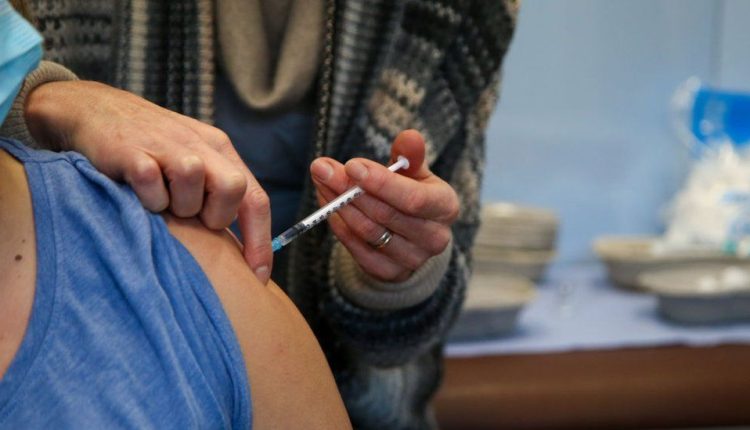Covid: Millions of vaccine doses destroyed in England
Around 4.7 million Covid vaccine doses – 4% of the total – ended up as wastage in England by the end of October 2021, a government report reveals.
AstraZeneca shots made up 1.9m.
The National Audit Office (NAO), which scrutinises spending of public money, says the wastage is far lower than projected for the country’s most ambitious vaccination programme ever.
Experts had assumed 20% of stocks might not be used, because of handling and storage problems or expiry dates.
The report praises the rollout overall, but says there were challenges.
- How many people are vaccinated in the UK?
- Children aged 5-11 to be offered Covid vaccine
“With that being the case, it is urgent that the government delivers on its pledges of 6,000 more GPs and 26,000 more members of the wider practice team, so that general practice can continue to utilise its expertise at delivering vaccination programmes, as well as delivering all the other care and services our patients rely on us for.”
That includes being left with too many expiring AstraZeneca doses, after experts recommended that people under 40 should preferably be given the Pfizer or Moderna vaccines, to avoid a rare but possible link to blood clots.
Some wastage was avoided by redirecting 4.5 million AstraZeneca doses to other countries, but stocks already at local sites had to be destroyed in line with regulations. Approximately 1.9 million doses were written off.
The NAO says the vaccine programme met “stretching and unprecedented targets” to save lives. Uptake exceeded expectations. By the end of October, it had administered around 87 million doses – about six times the number in the previous annual flu vaccine programme.
Despite the success and efforts to address inequalities, lower vaccination rates persist in some groups, such as pregnant women and black and Asian communities, the report warns.
And there are issues that could threaten the programme’s continuing success next winter: “Staffing issues, including burnout, and a lack of surplus capacity in the healthcare system, present substantial risks.”
Gareth Davies, head of the NAO, said: “The vaccine programme has been successful in getting early access to what were brand new vaccines, securing supply of them, and administering them to a large proportion of the population at unprecedented speed.
“The programme must now redouble its efforts to reach those who are not yet vaccinated, while also considering what a more sustainable model will involve as it moves out of its emergency phase.”
Dr Gary Howsam, from the Royal College of GPs, said the health service had “pulled out all the stops” to ensure as many people as possible were protected from Covid.
GPs and community pharmacists have ended up administering many more doses than originally planned – 71% up to the end of October 2021, compared with a planned 56%.
Dr Howsam said: “It’s a fantastic achievement that so many people have been vaccinated, with uptake exceeding initial planning assumptions – and this report does not take into account the booster programme, which has now seen more than 38m patients fully protected from the virus.
“It remains crucial that patients continue to get as much protection as possible so that we can move from a pandemic to an endemic Covid situation and GP teams will remain key to this effort.
“With that being the case, it is urgent that the government delivers on its pledges of 6,000 more GPs and 26,000 more members of the wider practice team, so that general practice can continue to utilise its expertise at delivering vaccination programmes, as well as delivering all the other care and services our patients rely on us for.”

Comments are closed.